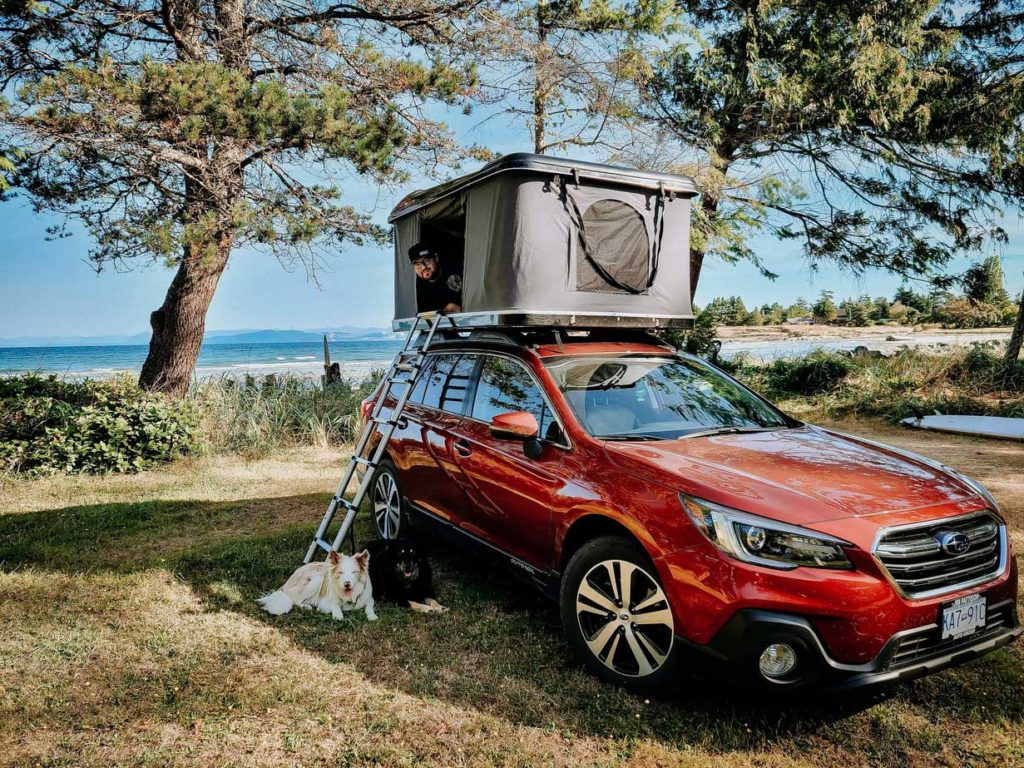There’s a lot to worry about when you’re out in the wild. From food to power and everything in between – there’s a lot you have to think about. But do you know that not all worries are built the same? Do you know some things are more important than others?
Keep in mind that when planning an outdoor adventure, camping storage is one thing you need to get right. Yes, you need food, power, and outdoor gear, but where exactly will you store these things? That’s why storage is so important.
But don’t worry. In this article, we’ve provided some tips and ideas that you can use to store your supplies when you’re on a camping trip.
Why Is Proper Camping Storage Important?
Camping is a great way to connect with nature and escape the stress of everyday life. But even in the great outdoors, a certain level of organization is key to maximizing your enjoyment. This is why at the heart of a stress-free camping experience lies one crucial element: effective storage.
When your gear is neatly stowed and readily accessible, you can spend less time rummaging and more time savoring the wilderness.
Pre-Departure Planning
- Have a Master List: Before packing a single sock, craft a comprehensive checklist that covers everything you need for your trip. This prevents frantic last-minute dashes to the store and allows you to anticipate storage requirements for each item. You should also consider categorizing your list by function (cooking, sleeping, hygiene, etc.) to streamline packing and organization further.
- Opt for Modular Storage: Invest in modular storage containers like stackable bins or collapsible crates. These versatile systems offer multiple compartments for categorized packing, maximize space utilization, and simplify vehicle loading and unloading. Plus, many are weatherproof and rodent-resistant, which helps add an extra layer of protection for your precious gear.
- Optimize Space: Space optimization is key! Utilize compression sacks for bulky items like clothes and sleeping bags. Opt for nesting cookware sets that take up minimal space. Roll towels and mats instead of folding them. Invest in lightweight, multi-functional tools and utensils that eliminate the need for bulky single-purpose items. Every saved inch translates to easier packing and happier unpacking!
Campsite Organization
- Divide Campsite: Designate specific storage areas for different gear categories once you’ve reached your campsite. A designated “kitchen zone” with easily accessible food bins and cooking utensils. A “sleeping zone” with tent poles and bedding organized nearby and a “hygiene zone” with toiletries and towels all readily available. These will keep your camp clutter-free and your sanity intact.
- Leverage Hanging: Utilize the vertical space! Hanging organizers, mesh pouches, and carabiners are your campsite besties. They keep dirty clothes, wet towels, and frequently used items off the ground, protected from critters and the elements. Of course, this also frees up valuable floor space.
- Label: Take a few minutes to label your storage containers with clear, concise descriptions of their contents. This small step saves you countless minutes of rummaging through bins.
Storage Hacks for Specific Gear
Food
- Vacuum-seal bags: Keep food fresh and compact by vacuum-sealing snacks, dry ingredients, and pre-portioned meals.
- Reusable containers: Ditch disposable packaging and transfer pantry staples like rice, pasta, and oats into reusable containers for easy access and pest prevention.
- Cooler organization: Use dividers and bins to categorize food groups within your cooler, making it easier to find what you need without digging through layers of ice and melted cheese.
Clothing
- Compression sacks: Save space and protect clothes from moisture and dirt with compression sacks.
- Stuff sacks: Organize clean and dirty clothes by separating them into different stuff sacks.
- Hanging laundry line: Rig up a simple clothesline using branches or a lightweight rope to air-dry wet clothes and towels.
Equipment
- Gear sheds: Invest in a portable gear shed for bulky items like bikes, kayaks, or camp chairs. This protects them from the elements and prevents them from cluttering your campsite.
- Shoe bags: Store dirty or wet shoes in dedicated shoe bags to keep them from contaminating other gear.
- Headlamp organization: Attach a small carabiner to your headlamp and clip it to your tent’s D-ring or backpack strap for easy access at night.
Bonus Tip 1: Embrace minimalism by resisting the urge to overpack. The more gear you bring, the more you have to store and organize. Prioritize essentials and multi-functional items, and leave the non-essentials behind. By packing for purpose and utilizing smart storage solutions, you can transform your camping experience from a chaotic scavenger hunt to a stress-free haven of relaxation and adventure.
Bonus Tip 2: Embrace multi-functionality! Look for gear for multiple purposes, like camp chairs with built-in coolers or tables that convert into lanterns. This saves space and reduces the overall amount of equipment you need to bring.
Conclusion
With your newfound storage mastery, packing up camp will be a breeze. No more frantic searches for misplaced items or gear. Simply fold tents, collapse crates, and load your organized vehicle.
To go further into enjoying a stress-free camping experience, you should consider adding a rooftop tent to your arsenal. Imagine setting up and dismantling camp in minutes, with all your gear conveniently stored and protected high above the ground. Visit Roof Top Tents to explore our wide range of rooftop tents.


